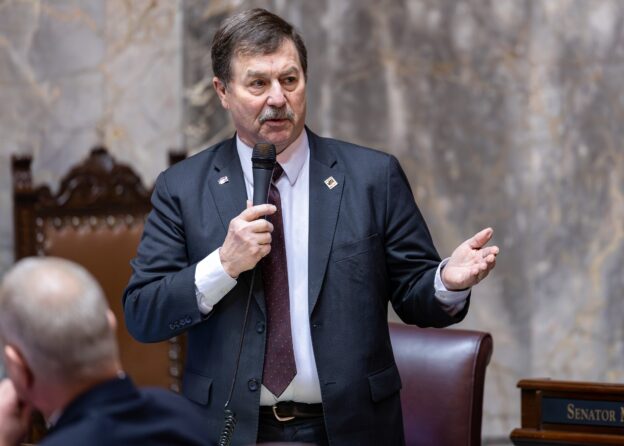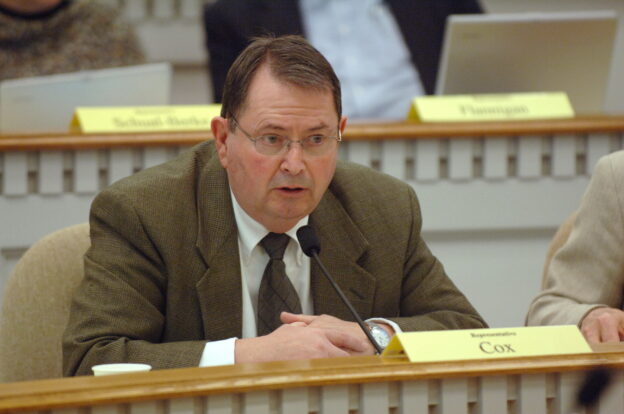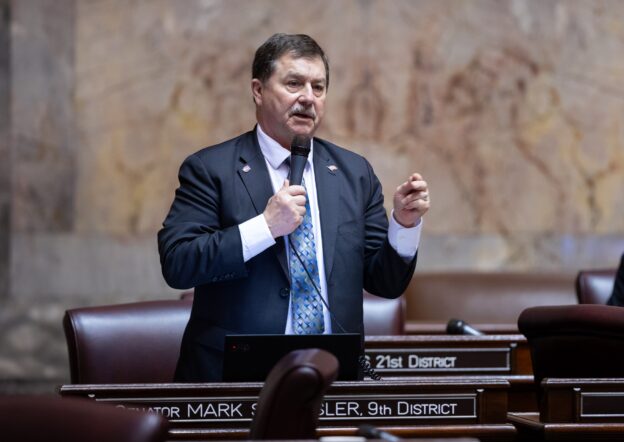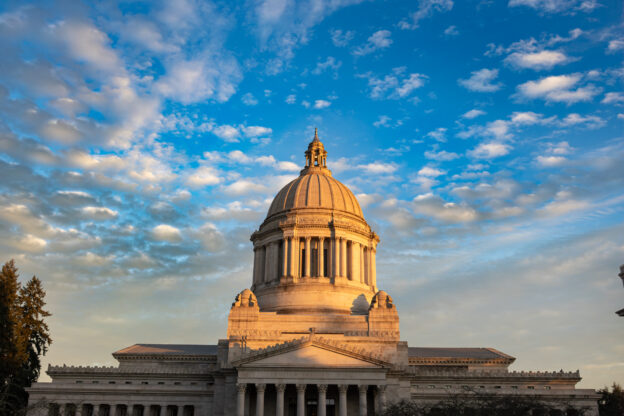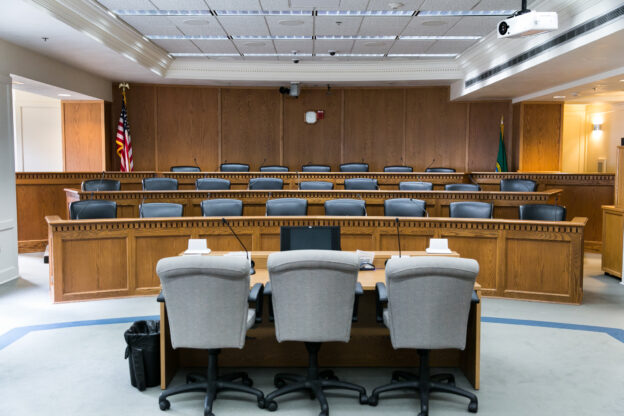Two months after the state’s controversial release of the late Kevin Coe, the “South Hill Rapist” who terrorized Spokane before his arrest and conviction in the early 1980s, state Sen. Mark Schoesler has filed a bipartisan bill that would make it harder to release serial rapists.
“Kevin Coe was one of the most dangerous and infamous criminals in our state’s history,” said Schoesler, R-Ritzville. His bill was “prefiled” and will be formally introduced when the 2026 legislative session convenes Jan. 12.
Coe was suspected of violently raping as many as 40 women and girls as young as 14 before being arrested in 1981 and ultimately found guilty of first-degree rape.
“It’s still shocking and unbelievable that the state released him this year,” said Schoesler, who was a college student in Spokane in the late 1970s when Coe was suspected of having committed his rapes. “During his years in confinement, Kevin Coe refused treatment and he never apologized or showed remorse. He should not have been released by the state.”
In early October, the state Department of Social and Health Services released Coe from the Special Commitment Center, on McNeil Island in Puget Sound. Schoesler opposed the move and vowed to introduce legislation in response.
After his release from the SCC, Coe briefly lived in adult-family homes in Federal Way, Auburn and Federal Way again before he died on Dec. 3.
“I hope the Legislature will make it a priority next session to pass this bipartisan bill to prevent or at least make it harder for DSHS or other state agencies to release people guilty of such heinous crimes. We need to place the public’s safety above the freedom of a serial rapist who was unrepentant to the end. After news spread of Coe’s release, several of his victims approached me and told me how angry they were about it,” said Schoesler.
Under the proposal, if a convicted rapist who is confined in the SCC is seeking release from confinement and the state produces sufficient evidence proving the convict refused to participate in sex-offender treatment while in total confinement and has not expressed remorse for the sex offenses of which they were convicted, a release to a less-restrictive alternative placement may not be ordered for the convict.
The proposal has 16 co-sponsors. The leading co-sponsor is Sen. Marcus Riccelli, D-Spokane.
Coe was arrested in March 1981. A jury convicted him later that year on four counts of first-degree rape, resulting in a sentence of life plus 75 years in prison.
In 1984, the state Supreme Court overturned Coe’s four rape convictions partly because three of the four rape victims were hypnotized before identifying Coe as the rapist. In 1985, a second trial was held, this time in Seattle. That jury found Coe guilty of three counts of first-degree rape. In 1988, the state Supreme Court overturned two of the convictions and upheld the third.
In 2006, state Attorney General Rob McKenna filed a petition to have Coe committed as a sexual predator, blocking his scheduled release that year from the Washington State Penitentiary in Walla Walla. Two years later a Spokane County jury declared Coe to be a sexually violent predator. This designation gave the state the right to hold Coe indefinitely at the SCC.
The 2026 legislative session is scheduled to last 60 days.
Schoesler represents the 9th Legislative District, which covers all or part of Adams, Asotin, Garfield, Lincoln, Spokane and Whitman counties.











